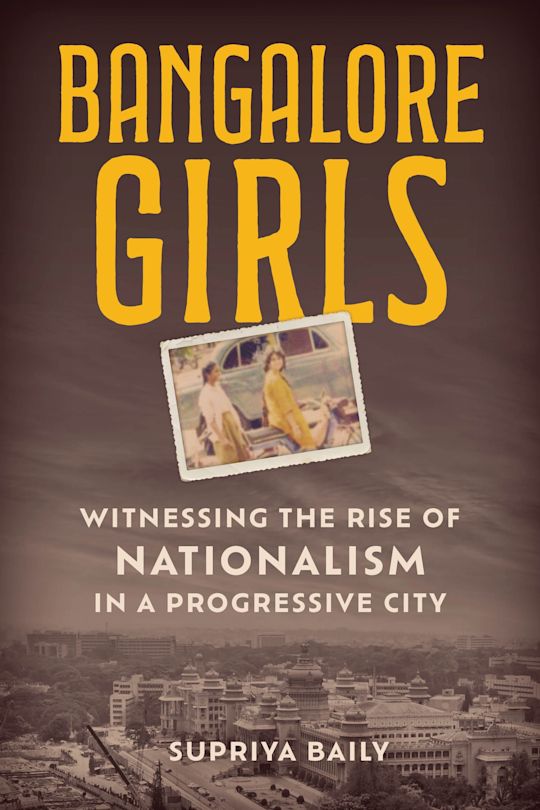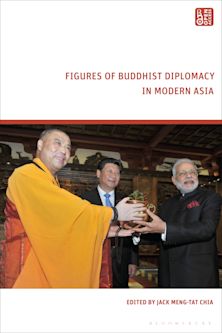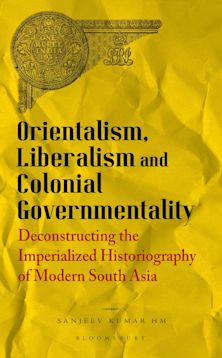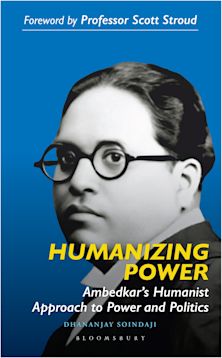Bangalore Girls
Witnessing the Rise of Nationalism in a Progressive City
Bangalore Girls
Witnessing the Rise of Nationalism in a Progressive City
- Delivery and returns info
-
Free US delivery on orders $35 or over
Description
Bangalore is looked at in depth in Supriya Baily's exploration of one of India’s most dynamic cities. Booklist praises the book, saying, "This deeply researched book is especially timely in light of recent gender-based violence in India.”
Through the stories of a group of school girls in what used to be India’s most progressive city, Bangalore Girls reveals how the freedom women once enjoyed in the “Silicon Valley of India” has been eroded by the rising tide of right-wing nationalism, misogyny, and religious fundamentalism.
Author Supriya Baily explores one of India’s most dynamic cities through the eyes of a group of women who grew up and went to school together in the late 1980s and early 1990s. As they enjoyed the trappings of a burgeoning middle class, these classmates also watched their country move to the right politically and socially, spurred on by the Ayodhya riots that tore down the Babri Masjid Mosque in 1992 and the sectarian violence that followed—a Hindu nationalist tide that continues to rise today.
The book offers us a window into these women’s lives and shows us how they are responding to the breakdown of progressivism across multiple domains. They discuss not only their own safety and the educational opportunities and challenges confronting their families; they also talk about such society-wide issues as anti-Muslim sentiment, the backlash against science, and the dangers of independent thinking. Baily gives voice to their worries about political cults of personality and government policies that seek to marginalize and ostracize anyone who speaks out against the authorities, but especially women.
As Indian prime minister Narendra Modi now consecrates the new Ram Temple in Ayodhya, it has never been more important to understand the wave of nationalism that began in 1992. The stories of these women told by Supriya Baily are a must-read tale of extremism’s threat to women’s rights and human rights.
Table of Contents
Introduction: Setting the Stage
Part I: Growing Up in a Progressive City
Chapter 1: The Making of a Metropolis
Chapter 2: Mopeds, Cafes, and Bookstores: Coming of Age on a Public Stage
Chapter 3: School, Home, and God: Girls in Private Spaces
Chapter 4: The Gathering Storm: The Rise of the Bhartiya Janata Party
Part II: Fault Lines in a Fractured Society: From Past to Present
Chapter 5: Women’s Safety and Security
Chapter 6: The Battle for Education
Chapter 7: Chipping Away at Belonging and Secularism
Chapter 8: The Backlash against Intellectualism
Chapter 9: Politicians and Patriotism
Conclusion: Seeking a Critical Hope
About the Author
Acknowledgements
Introduction: Setting the Stage
Part I: Growing Up in a Progressive City
Chapter 1: The Making of a Metropolis
Chapter 2: Mopeds, Cafes, and Bookstores: Coming of Age on a Public Stage
Chapter 3: School, Home, and God: Girls in Private Spaces
Chapter 4: The Gathering Storm: The Rise of the Bhartiya Janata Party
Part II: Fault Lines in a Fractured Society: From Past to Present
Chapter 5: Women’s Safety and Security
Chapter 6: The Battle for Education
Chapter 7: Chipping Away at Belonging and Secularism
Chapter 8: The Backlash against Intellectualism
Chapter 9: Politicians and Patriotism
Conclusion: Seeking a Critical Hope
About the Author
Product details
| Published | Nov 05 2024 |
|---|---|
| Format | Hardback |
| Edition | 1st |
| Extent | 218 |
| ISBN | 9781538198018 |
| Imprint | Rowman & Littlefield Publishers |
| Illustrations | 8 BW Photos, 2 Maps |
| Dimensions | 9 x 6 inches |
| Publisher | Bloomsbury Publishing |
Reviews

ONLINE RESOURCES
Bloomsbury Collections
This book is available on Bloomsbury Collections where your library has access.


































